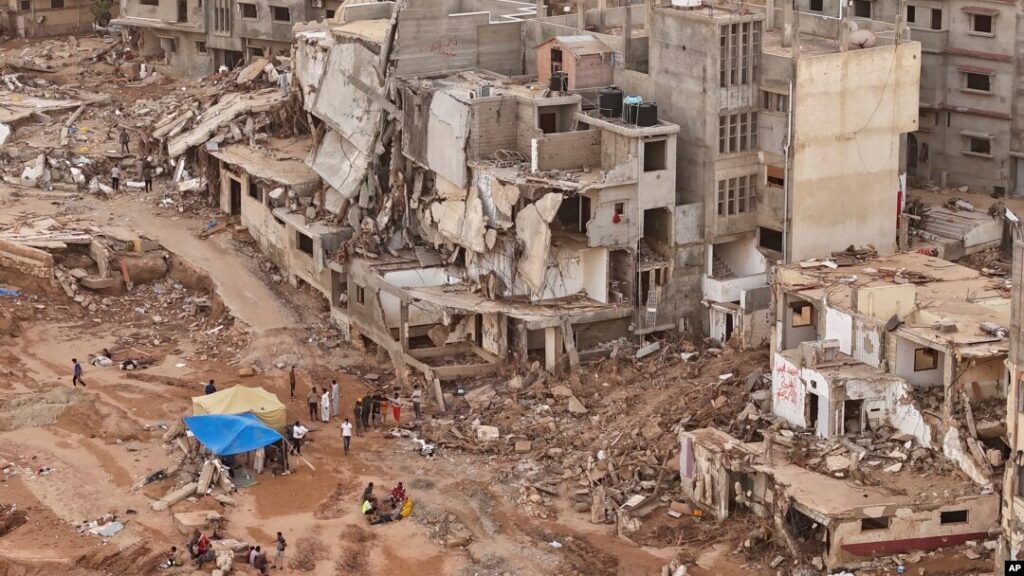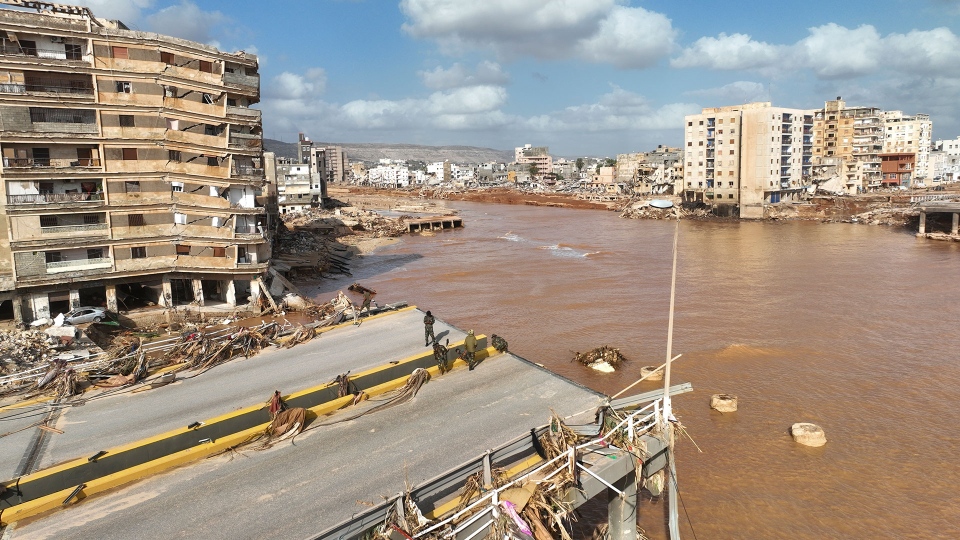A Libyan court has handed down prison sentences to 12 officials for their roles in the catastrophic floods that devastated the coastal city of Derna in September 2023. The Court of Appeal in Derna issued sentences ranging from 9 to 27 years to those found responsible for managing the country’s dams, according to a statement from the Attorney General in Tripoli on Sunday.

The floods, triggered by Storm Daniel, resulted in the collapse of several dams, leading to thousands of deaths and leaving thousands more missing. The disaster swept away buildings and destroyed entire neighborhoods in Derna, a city of 125,000 residents.
According to a judicial source in Derna, the convicted officials face charges including negligence, premeditated murder, and waste of public money. The source, speaking to Reuters, added that the defendants have the right to appeal their verdicts. The Attorney General’s statement also noted that three of the defendants were ordered to “return money obtained from illicit gains,” though specific names and positions of those on trial were not disclosed.

This verdict comes in the wake of a January report by the World Bank, United Nations, and European Union, which characterized the Derna floods as a “climate and environmental catastrophe.” The report estimated that $1.8 billion would be required for reconstruction and recovery efforts. It also highlighted that the dams’ collapse was partially attributed to outdated design based on obsolete hydrological information, as well as poor maintenance and governance issues stemming from over a decade of conflict in Libya.
The sentencing underscores the complex challenges facing Libya in terms of infrastructure management and climate preparedness. Since the toppling of Muammar Gaddafi in a NATO-backed uprising in 2011, Libya has been grappling with political instability and divided governance. The country has been split since 2014 between rival power centers in the east and west, complicating efforts for unified national development and disaster preparedness.
This court decision marks a significant step in addressing accountability for the Derna disaster. However, it also raises questions about the broader implications for governance and infrastructure management in a country still struggling with political fragmentation and the long-term effects of conflict.



